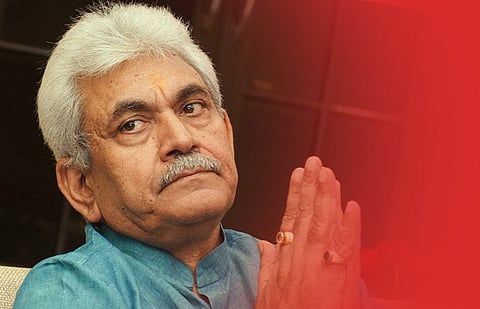
- News Updates
- PSU Watch
- Defence News
- Policy Watch
- हिन्दी न्यूज़
- Jobs Watch
- States News
- Event News

The ambitious programme to connect the country via Wi-Fi ahead of 2019 elections seems to be stuck in a quagmire, with only PSUs showing interest in the tender
New Delhi: The top three telecom companies in the Indian market — Bharti Airtel, Vodafone Idea and Reliance Jio Infocomm — do not want a pie of the government's ambitious broadband programme to connect the country via Wi-Fi and have not applied to a near Rs 10,000 crore tender for the countrywide rollout of 1.25 million WiFi hotspots across 2.5 lakh village blocks.
Industry sources said that the telecom operators have chosen to stay away from the deal because they did not see much business sense in the overall scope of the tender document and its technical specifications. The tender had been floated by state-owned Bharat Broadband Networks Ltd (BBNL), tasked with driving the national broadband venture, BharatNet.
According to an industry insider, on paper, BBNL's tender document says an implementing agency can offer last-mile connectivity across 2.5 lakh village panchayats (or blocks) either through public WiFi access points or any other suitable broadband technology, but technical specifications suggest deployment must be through WiFi access points only.
The government's plan was to kickstart the ambitious WiFi connectivity programme ahead of the upcoming General Elections, but only state-run MTNL and Bharat Electronics (BEL), and ITI and Telecom Consultants India (TCIL) have responded to the tender. Through this programme, the Centre intends to have 1.25 million Wi-Fi hotspots across the country by March 2019.
A source familiar with the matter said that telecom companies had specifically sought clarification from BBNL on the issue and had suggested that "use of mobile broadband technology be clearly incorporated as a second option in the tender, especially since most Indians "use smartphones as their primary device to access the Internet."
The private telecom operators were of the view that the government should leave it to the service provider to decide on the technology option, especially when 4G can be a much better option for last mile connectivity at the village panchayat level.
A senior BBNL source, however, denied that there were inconsistencies in the scope of the WiFi tender or its technical specifications. "There is enough clarity in the tender document and contentions at the telco level appear purely a matter of interpretation, based on which, they have not participated in the bidding process."
The source said that there were several clauses in the tender floated by BBNL that were deleted or amended after concerns were flagged by telecom service providers. "The idea was to make the tender technology-neutral in accordance with the Cabinet decision," the source said.
Telcos are against the idea of rolling out WiFi access points to boost Internet penetration because of its much weaker coverage capabilities compare to 4G mobile base stations. A WiFi-based deployment would require a telco to put up a far larger number of such access points in each village block to offer internet coverage comparable with 4G mobile base stations.
Industry sources said that one of the other problem areas flagged by telcos is the possibility of WiFi hotspots getting stolen as they are merely 5-10 metres high unlike a mobile BTS which is typically 30-to-40 metres high. Also, ensuring uninterrupted power supply to these hotspots would bring in additional business challenges.
